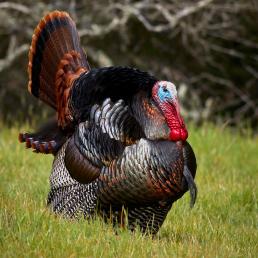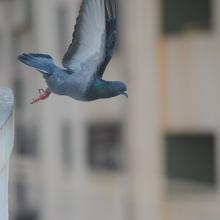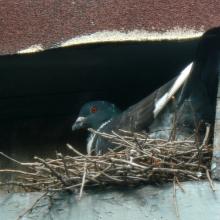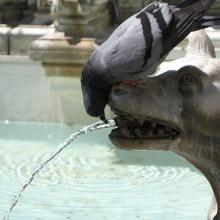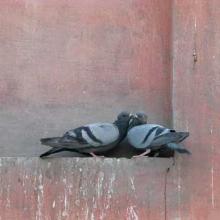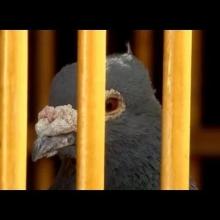

Join BirdNote tomorrow, November 30th!
Illustrator David Sibley and actor H. Jon Benjamin will face off in the bird illustration battle of the century during BirdNote's Year-end Celebration and Auction!
Rock Pigeons are one of the most common urban birds. But why do we never see baby pigeons? Some baby birds - like down-covered ducks, geese, and chickens - leave their nest shortly after hatching and do a lot of growing up while following their parents around. Others, like pigeons, depend on their parents to feed and protect them, well into their youth. They stay in the nest - under bridges and awnings, for instance - until they're nearly as big as the adult birds.
Have a comment? We want to hear from you. Contact us at BirdNote.
BirdNote®
Pigeon Babies Do Exist
Written by Frances Wood
This is BirdNote! [Rock Pigeons cooing]
That soft cooing sound comes from common pigeons called Rock Pigeons. [Gradually fade cooing]
Every spring, down-covered Mallard ducklings follow their mother across a pond. Goslings graze along side their Canada Geese parents in waterfront parks. Baby chickens peck the ground soon after hatching. But why do we never see baby pigeons?
Some baby birds—like those down-covered ducks, geese, and chickens—leave their nest shortly after hatching and do a lot of growing up while following their parents around. Others, like pigeons, stay in the nest and depend on their parents to feed and protect them, well into their youth.
When young Rock Pigeons finally leave the nest, they are full sized with adult feathers, and they look like their parents. So unless you look carefully under a city bridge, you aren’t likely to ever see a baby pigeon. [Fade in soft cooing sounds]
It’s easy to imagine, when hearing soft cooing sounds like these, [Cooing] why baby pigeons would rather stay in the nest. But the reason is they wait to fledge until they are nearly independent and the task of getting on with life is a bit easier. [Cooing]
You can hear BirdNote any time day or night, at our website. We archive all the shows, so if you miss one, just come to BirdNote.org. I’m Michael Stein.
###
Bird sounds provided by The Macaulay Library at the Cornell Lab of Ornithology, Ithaca, New York. Recorded by A.L. Priori.
BirdNote's theme music was composed and played by Nancy Rumbel and produced by John Kessler.
Producer: John Kessler
Executive Producer: Chris Peterson
© 2015 Tune In to Nature.org March 2017 Narrator: Michael Stein
ID# 030105ROPIKPLU ROPI-02b-MS-2009-03-31
